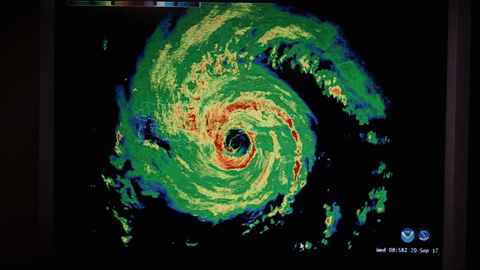
Study puts Hurricane Maria’s death toll at more than 4,600; some residents still struggle with power
By Charlene Santiago and Ben Moffat/ Cronkite Borderlands Project |
YABUCOA, Puerto Rico – A Harvard-led study released this week says more than 4,600 people died from Hurricane Maria – either from the hurricane itself or from its immediate aftermath. Officials had put the toll at 64.
The study, published in the New England Journal of Medicine, calls the government’s number a “substantial underestimate.”
The Harvard researchers visited about 3,300 households across Puerto Rico earlier this year and asked about deaths in their home. The researchers then compared death rates to the previous year and extrapolated that number to the island’s total population.
The study attributed the high mortality rate to the interruption of medical care. It noted the Sept. 20 hurricane had damaged roads, affected the water supply, knocked out electricity and telecommunication networks.
Even as hurricane season begins this week, some of Puerto Rico’s residents still are recovering.
Yabucoa, a small town 46 miles southeast of San Juan, bore the brunt of Maria’s strongest winds, according to meteorologists. A National Weather Service report had noted that Hurricane Maria had made landfall in the town with maximum sustained winds of 155 mph. Power outages still continue in Yabucoa regularly.
Here are some of the residents’ stories:
“Ninety percent of the municipal buildings were destroyed. That made us very sad, but even sadder was when we went into the communities,” said Rafael Surillo, mayor of Yabucoa.
– Voice of Rafael Surillo, mayor of Yabucoa
María Carrasquillo, who lives in the Limones section of Yabucoa, she said she has gotten used to the darkness while she waits for services to be restored.
For more than 15 years, Irma Arroyo has been her son’s anchor after he suffered an accident. They continue the battle against his disabilities, but now without electricity.
Since Hurricane María, more than 135,000 Puerto Ricans have left the island, according to the Center for Puerto Rican Studies at Hunter College in New York. The Colón-Santiago family is determined to stay and slowly recover, even though Hurricane Maria left them with almost nothing.

Leave a Comment
[fbcomments]